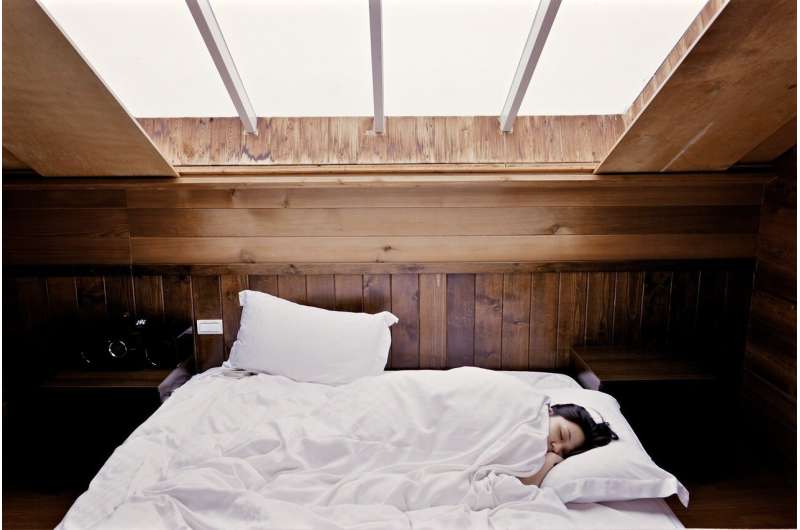Credit: CC0 Public Domain
With heatwaves occurring more frequently, investigators from the European Insomnia Network recently explored how outdoor nighttime temperature changes affect body temperature and sleep quality. Their review of the literature, which is published in the Journal of Sleep Research, indicates that environmental temperatures outside the thermal comfort can strongly affect human sleep by disturbing the body's ability to thermoregulate.
The authors note that certain groups—such as older adults, children, pregnant women, and individuals with psychiatric conditions—may be especially vulnerable to the sleep disruptive effects of heatwaves. They also offer several coping methods adapted from elements of cognitive behavioral therapy for insomnia.
"It is important to keep the bedroom below 25 degrees Celsius (77°F ): 19 degrees Celsius (66°F ) is the ideal. Sleep is known to become more shallow and less recuperating if the room temperature is too warm. Use a fan instead of air conditioning, if possible," said corresponding author Ellemarije Altena, Associate Professor at the University of Bordeaux, in France. "A lukewarm shower or foot bath before sleep can help to cool down and regulate body temperature during sleep. Plan physical activities only in the morning, when it is cooler, and drink a lot of water during the day to help the body cool down during the night. Alcohol both dehydrates and disrupts sleep, so limit those cold summer beers during heat waves. Keep a regular sleep schedule as much as possible, particularly for children."
More information: How to deal with sleep problems during heat waves: practical recommendations from the European Insomnia Network, Journal of Sleep Research (2022). DOI: 10.1111/jsr.13704
Provided by Wiley
























